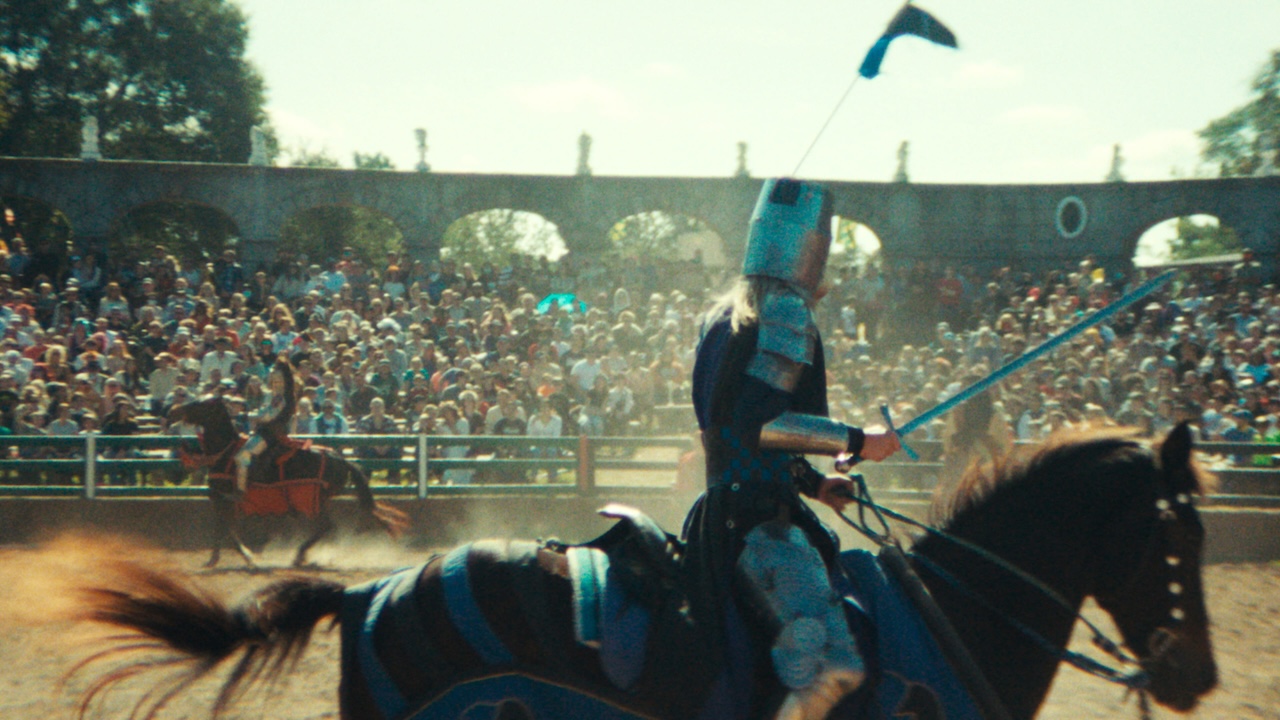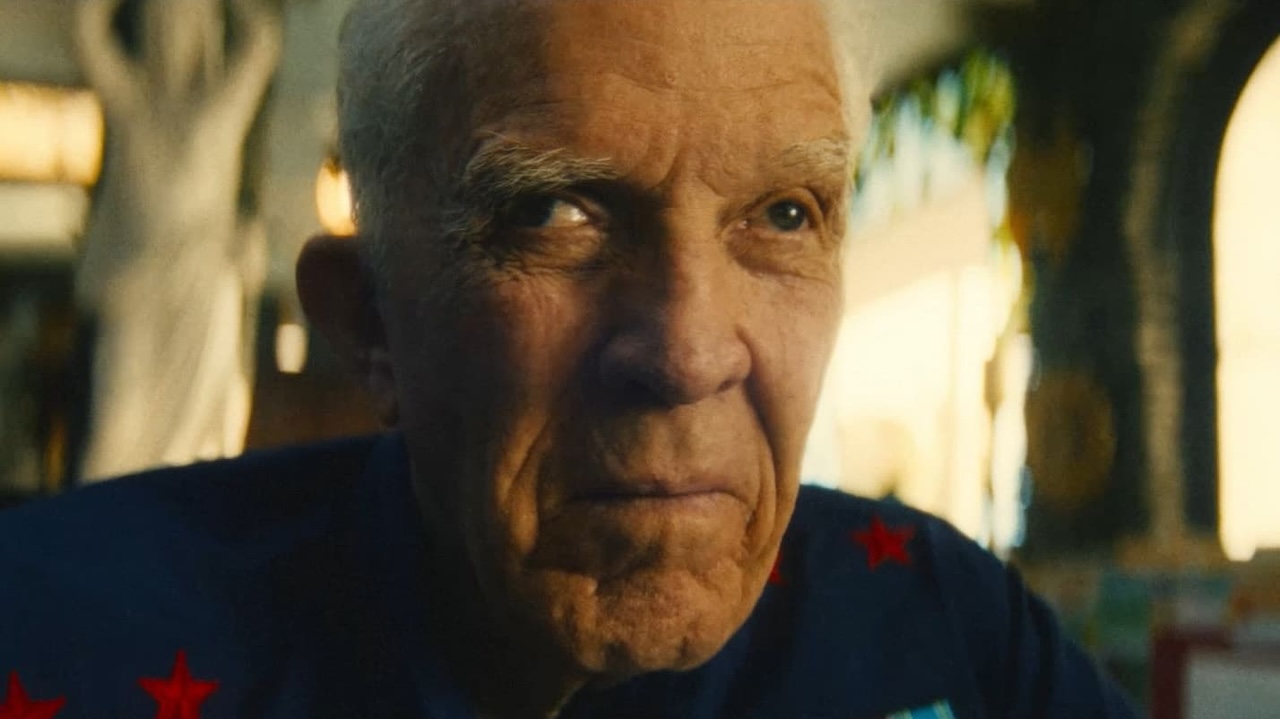Docuseries Ren Faire laces the truth with Red Bull and gold nuggets of character cringe

Good morrow and well met, dear reader! Holler out a hearty “huzzah!” for HBO docuseries Ren Faire, a heady burlesque of wild characters and Texas madness that Eliza Janssen applauds for not sticking strictly to the truth.
A Shakespearean power struggle dragged into the present day, laced with Red Bull and schadenfreude; that’s the genetic make-up of Ren Faire, a three-part docuseries from director Lance Oppenheimer. I’d also describe it as a medley of Tiger King and Uncut Gems, with the former reality series allowing us entry to a hermetically-sealed biome of weirdos while the latter used hallucinatory, overlapping dialogue to rocket up viewer anxiety.
It’s got an ailing king, two striving heirs to the crown who couldn’t be more different, and an oblivious supporting cast of dutiful subjects who just wanna get sloshed on mead and yell at a jousting tournament. Trapped within our tedious modern matrix, we can all yearn to vacation to the past at times—but most of us are nostalgically remembering our own childhoods, not a shabby capitalist cash-in on the Bard’s era.
What compels a community to expend every effort, including their dignity, in order to regress into a vision of the renaissance? Ren Faire might not offer a singular takeaway for this question, but the journey there is beautifully presented, and utterly hilarious.
Oppenheim’s real discovery here is King George, the lecherous and wall-eyed tyrant who has reigned over Texas’s biggest renaissance faire for practically the last half-century. He’s a bigger character than Game of Thrones’ bolshy Baratheon or Lannister rulers, with doco-friendly idiosyncrasies out the wazoo. He blasts Enya from his estate’s speakers all day long; worships statues of angels and Buddha for spiritual guidance; and, most entertainingly, is desperately seeking a much-younger queen with natural breasts (gotta be real!) to keep him company in his royal retirement. Scenes of George meeting sugar babies off the internet wouldn’t feel out of home in the agonising, fictional series The Curse, which makes sense since Ren Faire is produced by the Sadie brothers’ Elara Pictures label.
George is an editor’s dream, bloviating about his glory and power whilst snarky B-roll exposes him as a king of only cringe; slaving away at the cash-strapped production under his dictatorial rule, none of his underlings utter any word of admission that he’s a toxic asshole. He’ll reject a potential mate because she “hasn’t read a lot of poetry about love and sex”…as Oppenheim cuts to a pile of erectile dysfunction textbooks and self-help tomes about accepting rejection on the guy’s desk. There’s clearly enough unscripted insanity here to make Ren Faire’s documentary observations feel substantial—in fact, I would’ve enjoyed a longer season, with space to nail down the particular appeal of the faire lifestyle, and some room to meet the community’s other workers and patrons. But when it comes to the series’ real-life story, Oppenheim and co are also comfortable with embellishing the true sequence of events, shooting fantastical, psychedelic sequences to fill in those pesky gaps between actual human decisions.
As our designated hero of the yarn, entertainment director Jeffrey Baldwin deals with most of these creative non-fictions. He’s a big Santa-bearded hopeful, an overgrown theatre kid who never met a Shakespeare or Charlie and the Chocolate Factory metaphor he didn’t love. “We’re in act five of King Lear, babe”, he unironically warns his couldn’t-care-less wife, stressing about whether his years of service to George will be paid off in the form of a promotion to General Manager. Later, when he’s “royally screwed” out of the top gig, he bemoans that he feels more like Dahl’s Mike Teavee than the plucky Charlie Bucket—snubbed from taking over the factory of his dreams.
That makes kettlecorn salesman Louie Migliaccio the bad guy, a moneyed trust-fund bro who chugs energy drinks and isn’t in the race for the throne For The Right Reasons. Migliaccio’s scheme to purchase the festival and his distinctly 2024 presence fade after Ren Faire’s first episode, which is a shame as I’d love to hear more of his kettlecorn musical parodies—he hollers Lady Gaga remixes and “we built this city on kettlecorn!” to passersby. In the vein of Succession, there’s also a Gerri-esque, dark horse third contender for General Manager; former elephant wrangler Darla Smith, who tells us, deadly serious, that “when you’re working with elephants, it’s all about communication. It works with people, too.”

Ren Faire has three credited writers, a role which may confuse some viewers tuning in for an authentic or straightforward slice-of-life depiction. But the imagined and recreated scenes are needed to build on the limited series’ addictive atmosphere—it wouldn’t do to merely cut to a drab boardroom discussion, or an expositional talking head. Instead, we get a dragon-faced stranger snarling at our guy as he reacts with wide eyes: “Jeffrey…you’re running out of time. You must be king. You know what you have to do.”
These woozy fabrications feel of a piece with Ren Faire’s unique and seductive filmmaking style, which makes the daggy Southern reality of the setting feel like a sickening fairytale gone wrong. The film grain and colours here are dizzyingly exaggerated; knotty pine glows like gold, and plastic jewels emit a false, piercing lens flare light. Maddened giggling and whispering populates the soundscape. The score is soaked in string music that would feel sentimental and romantic anywhere else, but here just drives home the emptiness of Jeffrey and George’s high-minded self-image.
It’s artful and stylised enough to feel like a scripted A24 indie comedy at times; more similar to one of Sean Baker’s heightened working class burlesques than a documentary series. But I’m cool for Ren Faire to feel so unreal when its real characters and catastrophes are this watchable, such as when the fairground’s drinking water is labelled unsafe, or when George cracks it at his worshipful staff and begins to really resemble Lear after all. I wouldn’t like to turn back the hands of time and party like it’s 1599—but it’s a delirious, absorbing trip to meet the people who do.

















